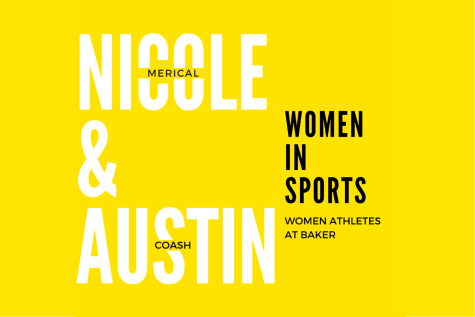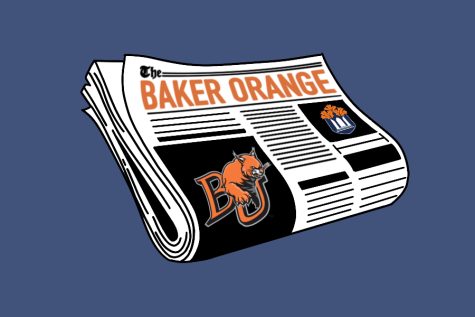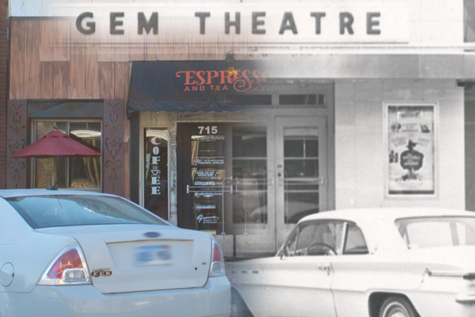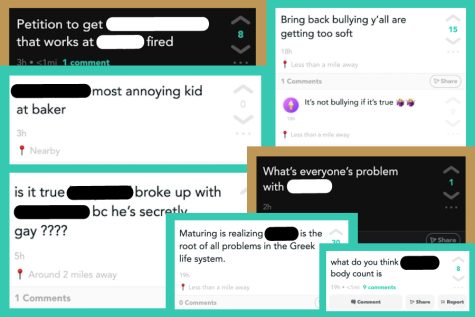The value of a page
October 23, 2014
If there’s one thing every college student should be familiar with, it’s a book.
Composed of paper, ink and the hearts and souls of writers around the globe, the books we read are so much more than we take for granted. Not only are they vessels for vast amounts of information and ideas, books are tickets to an escape that only comes from being lost in written words – an escape that’s becoming endangered.
Books were an essential part of my life before I knew what letters were.
When we were toddlers, my mother introduced my brother and me to one of the very first LeapFrog pads. With creative character voices, fun interactive booklets and a magnetic pen that gave us the control, we didn’t allow Mom to read us to sleep every night; we read to her by pressing the pen to the pad and having it sound out the words.
It didn’t take long before we were fluent readers. We’d want to read so much that finally a chapter-a-night limit had to be enforced, lest we never get to bed.
While most kids were being scolded for for staying up late and watching TV or playing video games, I was being lectured on the seriousness of trying to read at all hours of the night. “You need more light,” my mom would say. “You’re going to cause yourself to go blind.”
Life was perfect growing up as long as I had an adventure in my hands. We hurt for money growing up, but I never knew it. I didn’t have to go to the movies every weekend with friends to find new entertainment or characters to role play. I had my films in the form of books worth more to me than the $8 movies, and mine were free.
The public library was my home away from home. I lived on the comfy couches, spending countless minutes perusing the shelves for my next big journey. The afternoon was always hopeful when I sat in a group with friends and discussed our new favorites, but as I grew older, I realized a terrible truth: books are becoming obsolete.
The horrible reality I’ve come to face is how empty the libraries are now. Many people rarely visit libraries anymore other than to use their computers, do school research, or check out multimedia items such as CDs and movies.
When I look around now, I’m one of the few regulars still in it for the old-fashioned value of entertainment in novels, and it’s very saddening.
One of the leading causes of the lack of library traffic involves advancements in technology. With apps such the Kindle App and devices like Kindles, tablets, phones and computers, books are readily available at the touch of your fingertips.
Downloading an ebook, or electronic book, does have its conveniences, though. As a Kindle App user, I’ll admit it is lighter to carry my hundred and some books electronically on my phone than it would be to attempt to carry my bookshelf around, and it’s nice not to have to hold the pages open, but people don’t realize what they’re losing when they switch to screens.
According to an article from Scientific American, “Evidence from laboratory experiments, polls and consumer reports indicates that modern screens and e-readers fail to adequately recreate certain tactile experiences of reading on paper that many people miss and, more importantly, prevent people from navigating long texts in an intuitive and satisfying way.”
The article explains that there are certain key features of text presentation that are essential in the brain’s reading process, and reading on the screen can tamper with those features.
The brain looks at letters, their structure and their layout and approaches reading differently in different formats. Our minds are given a visual roadmap of connections when we read a book from the top of one page to the bottom, then to the top of the other page to the bottom, and then we flip the page.
This “roadmap,” as Scientific American says, makes the story easy to follow both visually and comprehensively. Because most electronic forms of books are less “tangible,” our minds lose those connections that are actually key to retaining information.
So I’d suggest, next time you are given the chance to buy the e-book online for a class or download one for reading pleasure, take a second to check if the paperback is available. You’ll actually learn and retain more of what is written.












